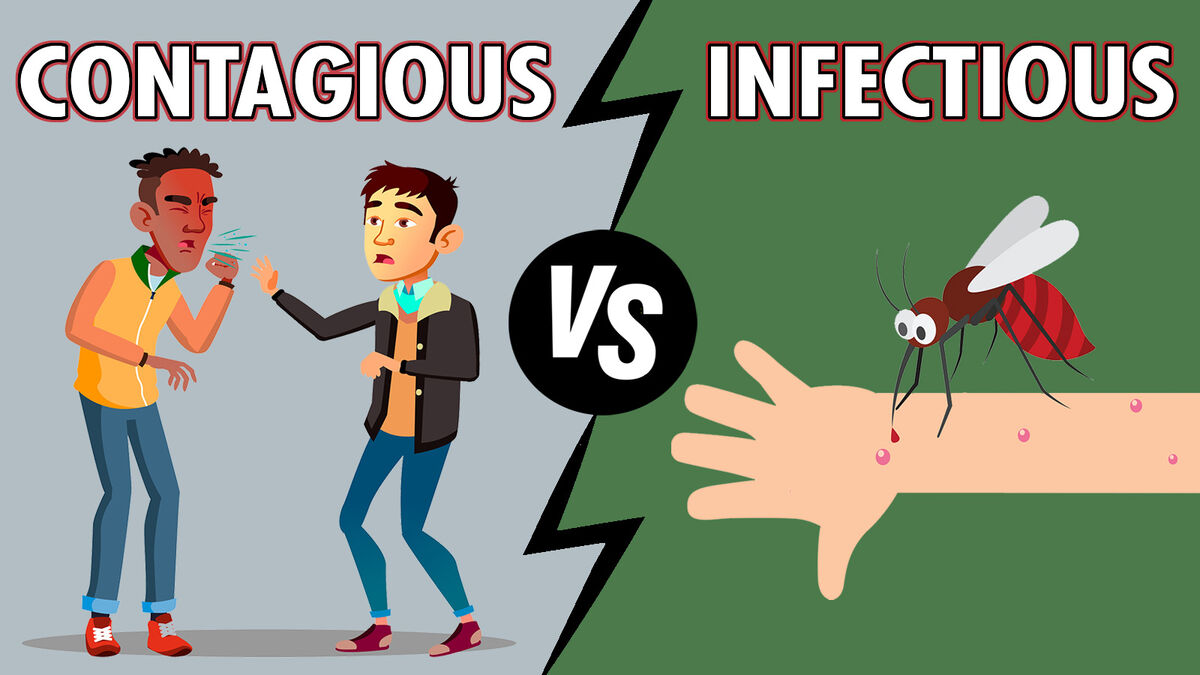
Understanding the use of the terms contagious vs. infectious is essential when writing or speaking about health topics like epidemics and pandemics. You need to use these terms correctly to make yourself understood, but first you need to know what they mean.
What Does Infectious Mean?
Infectious is an adjective that refers to something or someone that can transmit viruses, bacteria, or other germs to people or animals. The thing described as infectious is likely to spread infection. A germ can be described as infectious, and so can something carrying a germ. Here are a few examples to help:
- The chicken pox virus is highly infectious, so there is a vaccine to help prevent its spread.
- Children must be kept home from school for at least 24 hours after their fever subsides so they are no longer infectious to others.
- There are a variety of infectious diseases in the world, including influenza, coronavirus, and mononucleosis.
What Does Contagious Mean?
Something that is infectious can also be contagious. The word contagious is also an adjective, but it describes a specific type of infectious spread: person to person. A contagious disease is one that someone can “catch” from another person. These examples will show you how to use it properly:
- Because you can’t catch asthma from someone else, it isn’t a contagious illness.
- Sally had to stay home from school because her strep throat was contagious.
- Tom wasn’t sure if his cough was contagious, so he decided to self-isolate to keep from spreading it to others.
Both Terms Can Be Used Figuratively
Although infectious and contagious have clear scientific and medical meanings, they can also be used figuratively. This is perfectly correct, and offers a vivid way to describe something that can be spread from person to person or from other thing to another thing.
In general, contagious has a slightly less positive connotation than infectious when you are using them figuratively. The following examples will help you use the terms this way:
- He had an infectious laugh. Whenever anyone heard him, it was impossible to keep from laughing right along.
- In a crisis, fear can be contagious. Leaders need to remain calm in order to keep others from panicking.
- No one could feel sad watching the children open their gifts. Their joy was infectious.
Contagious vs. Infectious: Important Differences
Because these words overlap in their meaning, it can be difficult to know which one you want to use. The key is clearly understanding where they differ.
Who (or What) Has the Germ
One key difference between these terms is who or what is carrying the disease:
- To use the word contagious, a person must have the germ or the germ must be one that is carried by people.
- To use the word infectious, the germ can be carried by anyone or anything.
How the Germ Is Transmitted
Another important difference is how the disease is transmitted:
- If you use infectious, the germ can be transmitted any way.
- If you use contagious, it must be transmitted from person to person.
Quick Reference Guide With Examples
This quick reference guide has some examples of diseases, their method of transmission, and whether they are infectious or contagious.
Disease | Method of Transmission | Infectious or Contagious? |
Tick bites to humans or animals | Infectious but not contagious | |
Person to person | Both infectious and contagious | |
Person to person | Both infectious and contagious | |
Person to person | Both infectious and contagious | |
Bacteria colonizing fluid in the ear | Infectious but not contagious | |
Mosquito bites to humans | Infectious but not contagious |
How to Know Which Term Is Correct
Ultimately, like many other common word choice and grammar mistakes, you need a trick to remember whether contagious or infectious is the correct word. Remember, you can always use infectious, but you can only use contagious if the disease is spread from person to person. If you keep this in mind, you’ll always choose the right word.